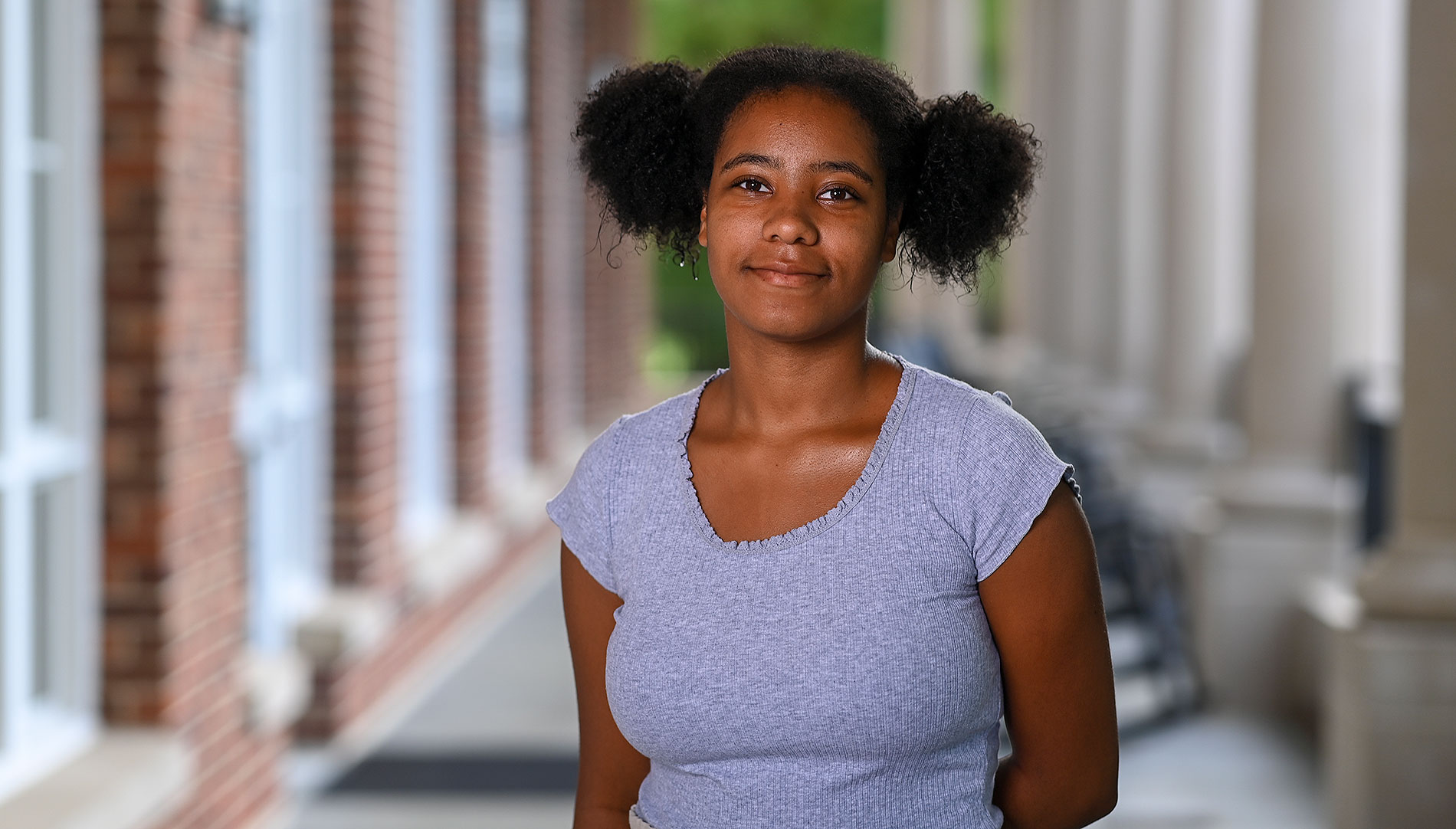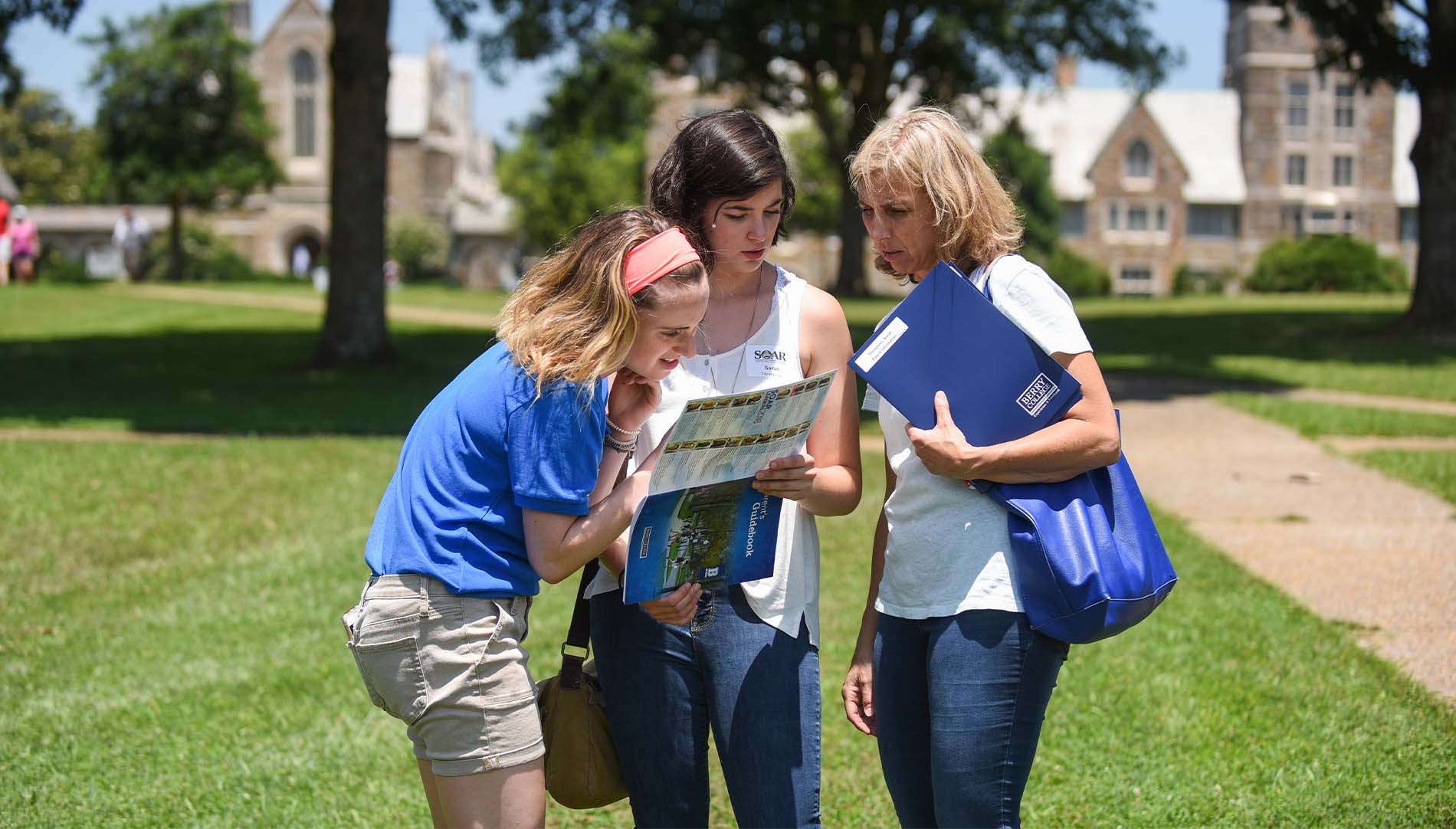Since coming to Berry, Khanaja Scott ’24 has flourished as a creative and professional. She stretched her skills writing fantasy and poetry but now leans toward a career as an editor. A student director at Berry’s writing center, she discovered how much she loves working with others. Here she gives perspective to the power and practicality of a liberal arts education — through the lens of a creative writer and coach.
Q. How do you apply creative writing skills in the workplace?
A. I think a part of being an effective writer is exposing yourself to different attitudes and ideologies. This allows you to connect with a wide range of people and audiences. … From clients to co-workers to higher-ups, knowing how to pivot your language to the situation is very important. Just as well, knowing how to get people to connect with you and allow you to connect with them is essential in terms of marketing and securing return customers. In a more literal sense, we’re living in a very digital world, and knowing how to format documents and utilize different software is crucial.
Q. What do you enjoy about your job at the writing center?
A. Effective writing isn’t a secret code that some people are ingrained with at birth; it’s a skill like anything else that can be practiced and improved at any point. I’ve had some regulars for a very long time, and I have never felt prouder than when I see them become more confident in areas they used to struggle in. … In one day, I go from reading deeply personal RHW papers to upper-level papers on medicinal chemistry or neonatal nursing packages or the Montana TikTok ban!
Q. What is the value of taking courses like Writing and Community?
A. We got to teach creative writing to the kids in the Rome Youth Detention Center, which in itself is a very valuable encounter. I think, as a writer, exposing yourself to as many new and undiscovered paths, people and landscapes as possible is the most valuable thing that you can do.
Q. Describe your Honors thesis and its purpose.
A. My Honors thesis focuses on defining, destigmatizing and empathizing with picky eating. I’ve been a picky eater all my life and discovering the patterns – in nationality, ethnicity, parenting types, socioeconomic status, birth order and so on – of picky eaters has been absolutely fascinating. … Why is picky eating a choice while other forms of disordered eating – such as disorders and intolerances – are taken seriously? As I discuss in the project, picky eating surely comes with some pretty serious health concerns.
Q. Any advice for students considering the creative writing major at Berry?
A. If you want to study creative writing because you love writing, want to be a better writer and have obtainable goals regarding writing, this is the place for you! If you want to major in creative writing so that you can immediately become famous, published and rich, then reconsider whether you love writing! You have to be willing to listen, to read, to accept criticism and to be open to change and progress. Creativity is dynamic, and no one is ever done learning a craft; no one’s writing is perfect or ideal; learning lasts forever.



